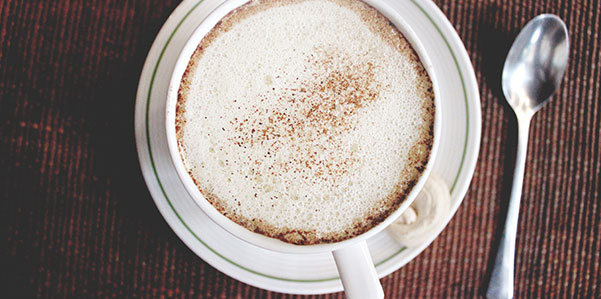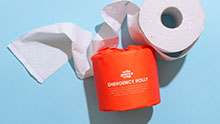A lesson in Behavioural Economics with Teaspoons
When you think about hedging your portfolio, who would have thought Toilet Paper would have been the best hedge against a Coronavirus Black Swan event. Yet here we are in the midst of hoarding by the masses.
Supermarkets all over the country are sold out of Toilet Paper, shoppers are fighting in the aisles, bulk buying and hoarding. It seems irrational, yet any man will tell you, running out of toilet paper in a house full of ladies is akin to marital suicide. Douche does not seem to be an option (at least in my house).
But despite our rationale mind understanding that toilet paper will not run out, there is a shortage, we can see this when visiting the supermarkets, and there are repercussions to our marital bliss ☺.
If nothing else its an interesting insight into Behavioural Economics and reminded me of my time at the Savoy Hotel.
Teaspoon Economics
When I was 14, I started working as a waiter in the Savoy, one of Blackpool’s leading hotels in Northern England. The place must have been in financial difficulty because there was a shortage of teaspoons. Apparently, this had been going on for some time. As a result, it was expected that you brought in your own teaspoons for your tables.
I should add, this phenomenon did not extend to other spoons or cutlery.
As you can imagine, guests were non plus when offered a soup spoon with their coffee, or requested to share their teaspoon with the other people on their table. There became a correlation between tipping and teaspoon ownership. In an environment of pre/below minimum wage income, tipping was important.
As a result, teaspoons became a significant currency within the hotel and it led to secondary markets and other behaviours.
- Waiters morphed into Scrooge at the start and end of every shift, counting in and out their teaspoons
- Labour in exchange for teaspoon hire, “you help clear my tables and I’ll lend you my teaspoons”
- Teaspoons as currency, “I’ll give you two teaspoons (for a table of 20), but you need to share your tips”
- As soon as a table was cleared, the staff were picking out their spoons from the potwash, fearful that they would fall into “the abyss”
- Teaspoons that went through the pot wash were fair game. Scavengers desperate for spoons spent disproportionate amounts of time hanging around the potwash.
- Other staff would steal your spoons if you put them down. This led to waiters always carrying large pocketfuls of teaspoons.
- It spilt out into our personal lives, our homes and families didn’t have spoons at home when we were on a shift.
- It led to hoarding when you had enough spoons. After all, you may only need 10 teaspoons for tonight’s service, but you may need more for a banquet tomorrow night. And what if someone stole some of your teaspoons, you need backup.
- You can’t carry 40+ teaspoons while running around serving guests, and this led to waiters hiding spoons in various spots around the restaurants and kitchens which in turn led to waiters spending a good deal of their shifts looking in cupboards, behind curtains, and inside teapots.
- There were regular squabbles and fights broke out on occasion.

I should add, there were other hotels in the same chain in Blackpool, this phenomenon was only peculiar to the Savoy. I worked at the sister hotel, the Cliffs, based just 2 miles up the road for a few shifts and they just stared at me and my alien behaviour, counting and hoarding teaspoons.
The hotel was eventually sold to a larger group, 1st Leisure PLC. New management formally acknowledged the ridiculousness of the situation and immediately purchased thousands of teaspoons.
Within a matter of weeks, teaspoons were scarce again.
I worked there on and off for nearly 7 years while studying, I like to think it provided a sound base in behavioural economics. When I left, people were still hoarding teaspoons….
Bubbles and the corresponding behaviour are by definition irrational and continue for much longer than anyone anticipates.
Perhaps a couple of extra rolls in this week’s shopping makes sense after all?

Comment: